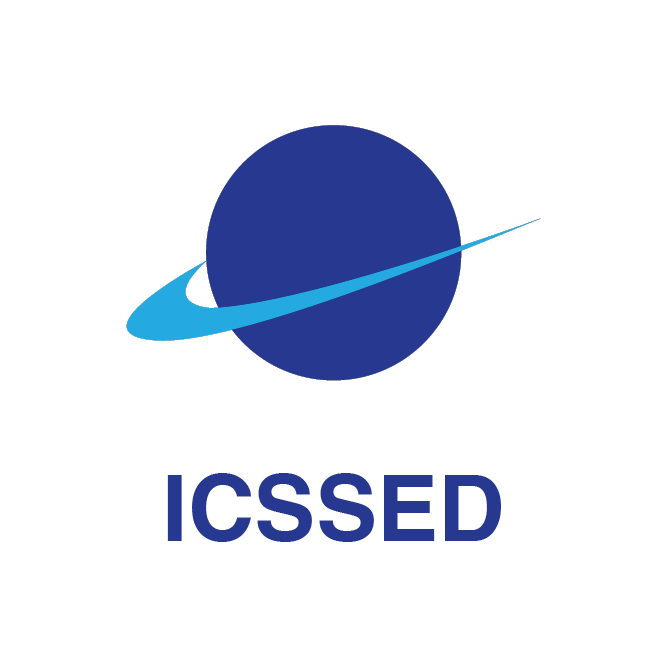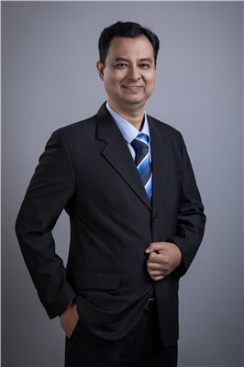Assoc. Prof. Dragana Ostic

Prof. Junfeng Liao South China University of Technology, China | Research Area: Marketing (Internet marketing, big Data marketing), Data Asset Management, Internet Finance, Cross-cultural Consumer Behavior Research Experience: Prof. Junfeng Liao is a professor in the Department of Electronic Commerce of South China University of Technology, Doctor of Management and master's supervisor. He has presided over research and teaching projects such as the National Philosophy and Social Science Foundation Project, Guangdong Philosophy and Social Science Foundation Project, Guangzhou Philosophy and Social Science Foundation Project, Guangdong Quality Engineering Project, Guangdong Teaching and Research Reform Project, and the Key Project of Basic scientific Research Funds for central universities and colleges. Published more than 50 papers in SSCI Q1 Top, SCI Q1 & SSCI Q1, CSSCI, EI, Core and other high-level international academic journals of management, business, economics, engineering, domestic academic journals and academic conferences, and served as a reviewer for Nankai Management Review, Management Journal and other high-level academic journals. Three textbooks and monographs have been published. Title: Which direction will electronic word-of-mouth (eWOM) choose? Dance drama eWOM’s spatiotemporal characteristics and influencing factors |
Assoc. Prof. Prasad Siba Borah School of Management, Jiangsu University, China | Research Area: Marketing Management, Entrepreneurship, Innovation Management Research Experience:Dr. Prasad Siba Borah, Ph.D., is an Associate Professor at the School of Management, Jiangsu University, China. He has authored and co-authored over 20 research papers, many of which have been published in leading peer-reviewed academic journals, including SSCI/SCIE Q1 and A* level journals such asBusiness Strategy and the Environment,Energy Economics, andTechnology in Society. His research has been featured in highly cited journals published by renowned academic publishers, including Elsevier, Wiley-Blackwell, and Emerald Publishing. Dr. Borah served as the lead editor of the book Selected Cases on Management, published by Tsinghua University Press. Additionally, he is an active reviewer and a member of the editorial boards of several esteemed academic journals, contributing significantly to the field of management science and business research. Title: Generation Z's green purchase behavior: Do green consumer knowledge, consumer social responsibility, green advertising, and green consumer trust matter for sustainable development? Abstract: Generation Z (Gen-Z), representing a demographic cohort of persons born from 1995 to 2010, has demonstrated their concerns for environmental protection. On September 20, 2019, for example, millions of Gen-Zs from over 150 different countries across the globe embarked on a protest to pressure decision-makers and governments to help save the planet.Such campaigns have caused firms to rethink howthey operate by adopting green operations in their production and distribution of products. The footwear industry is not left out. The problem this research sought to address is the assessment of the effect of green consumer knowledge on green purchase behavior among Gen-Z consumers towards footwear while assessing the roles of consumer social responsibility, green advertising, and green consumer trust. Findings revealed that although green consumer knowledge had a direct effect on green purchase behavior, this effect was partially mediated by consumer social responsibility. The effect of consumer social responsibility on green purchase behavior was positively moderated by green advertising, and the moderating effect of green advertising was further strengthened by green consumer trust.Finally, the mediating effect of consumer social responsibility was conditional on the moderating effects of green advertising and green consumer trust. It was concluded that green consumer knowledge is an essential ingredient in enhancing Gen-Z con- sumers' green purchase behavior towards footwear, as such, advocacy and pressure groups must increasingly conscientize consumers. |
Jiangsu University, China | Research Experience: Dragana Ostic is a dedicated academic professional with over nine years of experience in higher education. Currently an Associate Professor at the School of Finance and Economics at Jiangsu University, she specializes in teaching advanced courses such as Business Communication and Culture, Negotiations, Game Theory, Sales Management, International Trade, and International Business. Her innovative teaching methodologies have earned her prestigious awards, including first prize for teaching at the School of Finance and Economics and second prize in the Jiangsu University teaching competition. In addition to her teaching responsibilities, Dragana plays a significant role in the Jiangsu University Belt and Road University – Enterprises Alliance for International Talents’ Cultivation and Education, fostering strong connections between students and industry. Her academic journey is marked by a Ph.D. in International Economics from the University of International Business and Economics, Beijing, and numerous publications in renowned journals. Fluent in multiple languages, she is committed to enhancing student engagement and contributing to the academic community through her research and publications. Title: Leadership and Communication in a Rapidly Changing Global Economy Abstract: In an era of economic uncertainty, technological disruption, and evolving workforce dynamics, leadership and communication are undergoing a profound transformation. As digital adaptation accelerates and multigenerational teams redefine workplace culture, leaders must develop the ability to navigate generational differences, resolve conflicts, and harness digital tools to foster collaboration and innovation. This keynote will explore how modern leadership must evolve to address the expectations of Baby Boomers, Gen X, Millennials, and Gen Z, each bringing distinct communication styles, work values, and technological preferences. With AI-driven decision-making, remote collaboration, and digital-first workplaces becoming the norm, leaders must bridge generational gaps, ensuring effective communication, engagement, and productivity across teams. Additionally, the session will focus on conflict resolution strategies in diverse workplaces—helping leaders turn differences into strengths, foster mutual understanding, and create inclusive environments where traditional leadership wisdom meets digital innovation. |


